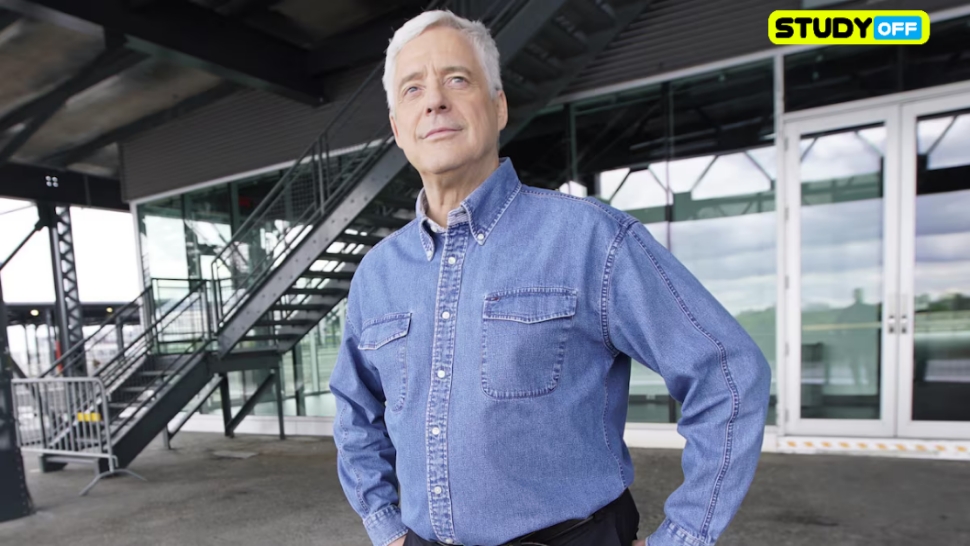Half a century of magic at Radio-Canada with Charles Tisseyre
In a lengthy interview, the science and information enthusiast reflected on his successful career, his past aspirations to be an actor, his dyslexia, the drawbacks of live broadcasting, and the significant events he covered, including the Polytechnique massacre and the Challenger shuttle explosion, among many scientific advances.
On July 15, 1949, Charles Tisseyre was born in Montreal. His parents were Pierre Tisseyre, a journalist, literary editor, and legal counselor, and Michelle Tisseyre, a journalist and the longtime presenter of Radio-Canada.
Given his family history, one would assume that Charles Tisseyre’s destiny had been predetermined, yet this is untrue.
Little Charles struggled to keep up in class at his little school, where he first experienced difficulties. I had a hard time picking up reading and writing. He recalls, “When I started kindergarten, I saw my friends making progress and I couldn’t do it.” This has traumatized you. You soon conclude that it’s your lack of intelligence.
Thankfully, he received specialized care from a committed professional who gave him extensive instruction in reading and writing. For a while, this helped to level the playing field, but at twelve, he was getting ready to repeat his sixth year of elementary school. The formal diagnosis was still pending.
I was moved by my parents to Stanislas, where I found myself in Roland Boutaric’s class. It was a shift from space. He tells us that he had such power over us that you could have heard a pin drop. He was an excellent popularizer and instructor, though, which made him entertaining to hear from.
The young man’s discipline allowed him to continue with his studies, but a few years later, in high school, he failed again. His parents, in a desperate move, moved him once more, this time to Marcel Alexandre’s Institute of General Culture.
“We will work hard to help you succeed, but you have to give it your all,” was his one and only requirement when he accepted me. My life was altered when he shook my hand.
Charles Tisseyre had dyslexia all of his life, but he overcame it by working even harder. He carried a dictionary with him wherever he went at Radio-Canada and read himself several times over to make sure he was not making any mistakes.
Work is a superpower for dyslexics. You will get better and achieve greater achievement the harder you work.
rupturing a closed door
Charles Tisseyre contemplated a career as an actor or teacher following his secondary education. But at his father’s insistence, he initially graduated with a degree in law, a profession that rapidly turned him off since it was so dry.
He first gave serious thought to a journalistic career in his early twenties while working at Radio-Canada, an organization he really respected from his childhood memories of spending a lot of time there with his mother. However, the public broadcaster had no intention of giving him a red carpet treatment.
Even though there was no job posting, I walked to the front door personally and stated I wanted to apply, he claims. I applied, but it took months and months for anything to happen.
He grinned.
Launch in full screen mode
In the 1970s, Charles Tisseyre was only starting out at Radio-Canada.
A few years later, he finally struck it lucky when his old girlfriend’s editor-in-chief at Present, where he worked, recommended him to Radio Canada International for an announcer-producer post. The chief announcer said, “That’s not good at all, first of all, your voice is too nasal,” in response to his audition.
After participating in reading aloud classes and doing some theater, he was hired six months later. Fifty years ago, on June 18, 1974, he started his career.
Five days a week, I transmit a live one-hour show to Africa. The show was presented and produced by myself. He recalls, “I learned everything, it was great training.” Before taking a job as a journalist in, he worked for Radio Canada International for four years.
The Challenger shuttle’s explosion marked the beginning of a popularizer
Charles Tisseyre produced many scientific studies while covering local and national news between 1978 and 1986. On January 28, 1986, his career took an unexpected turn when he was seated on this chair.







